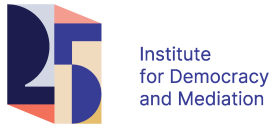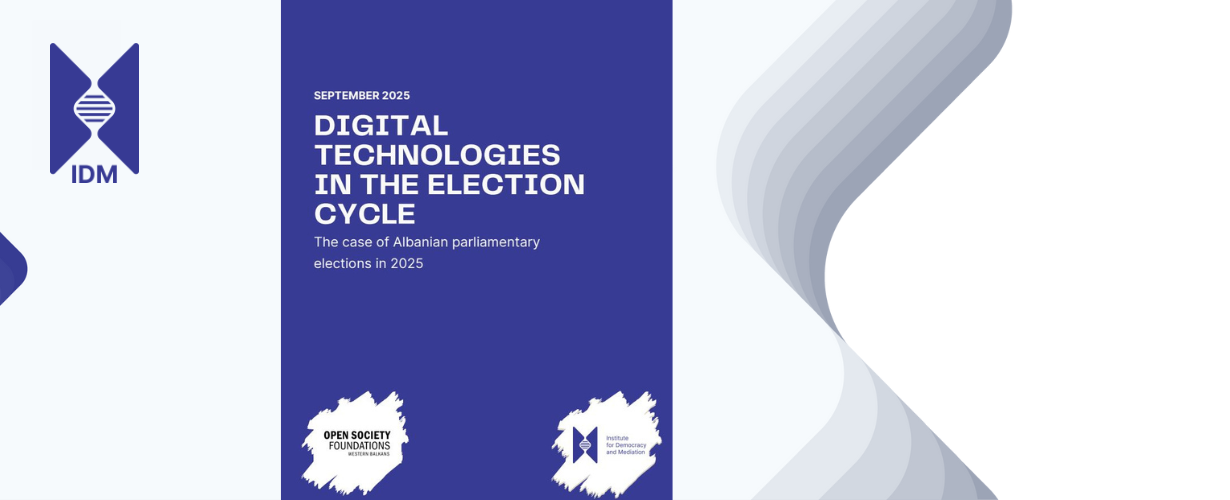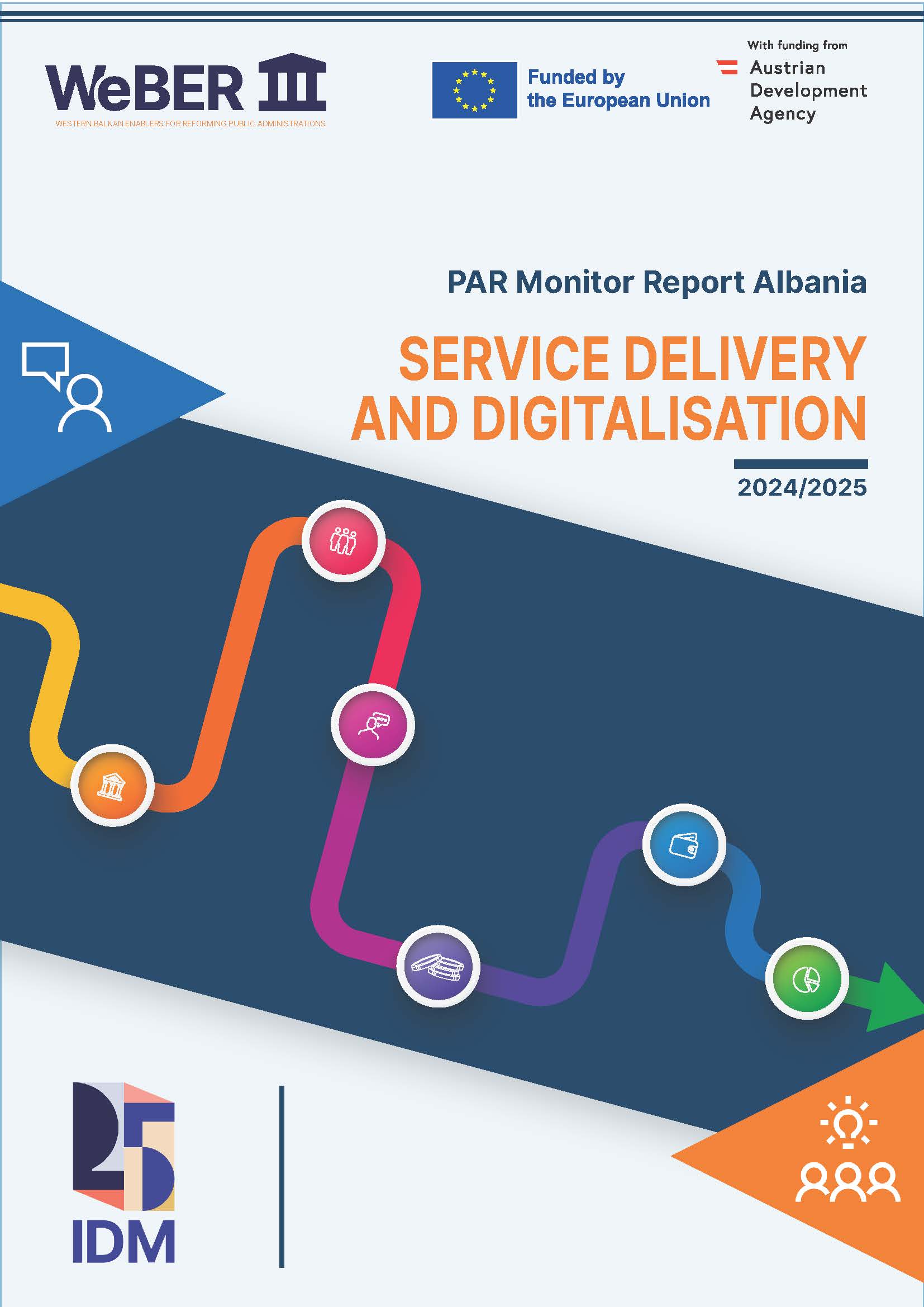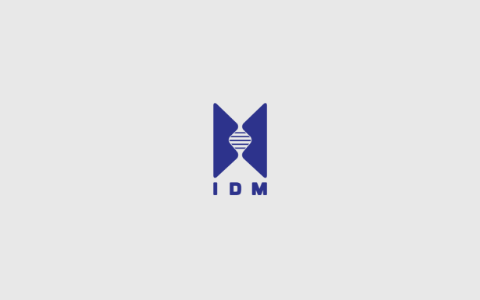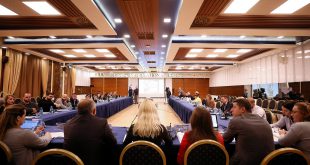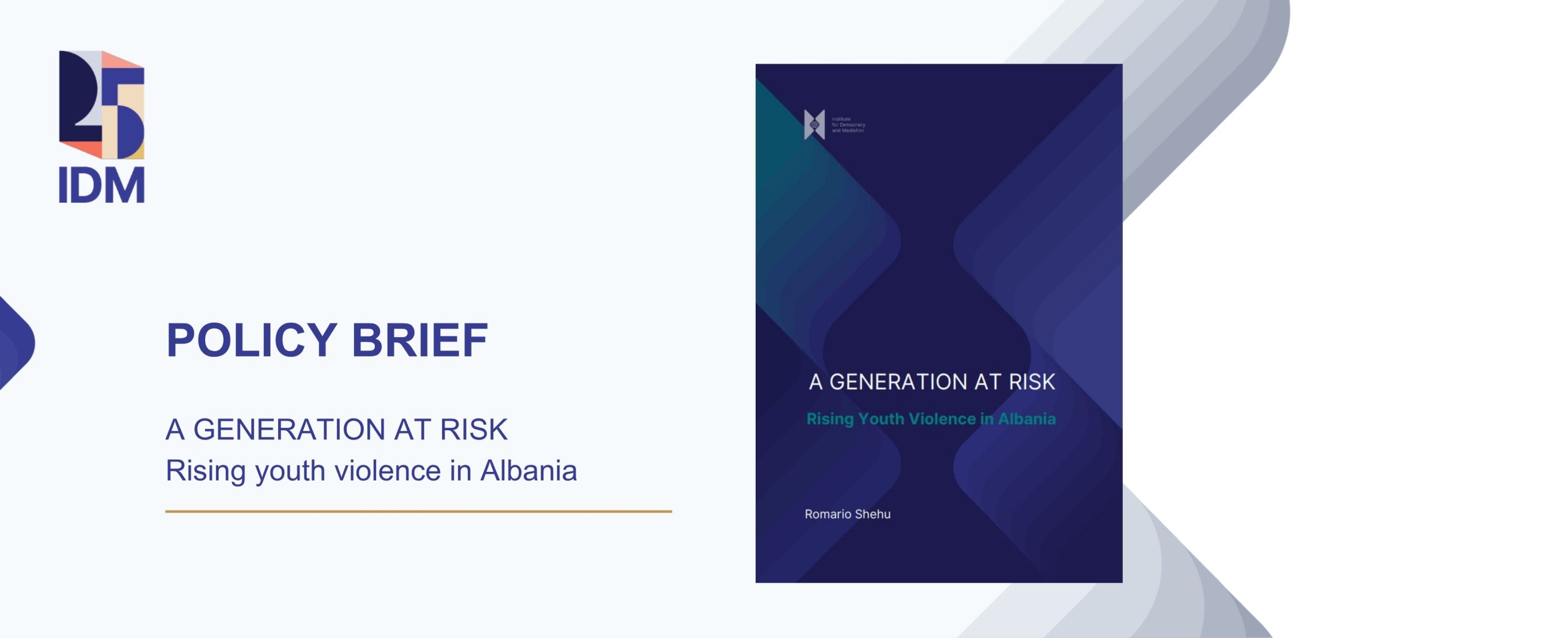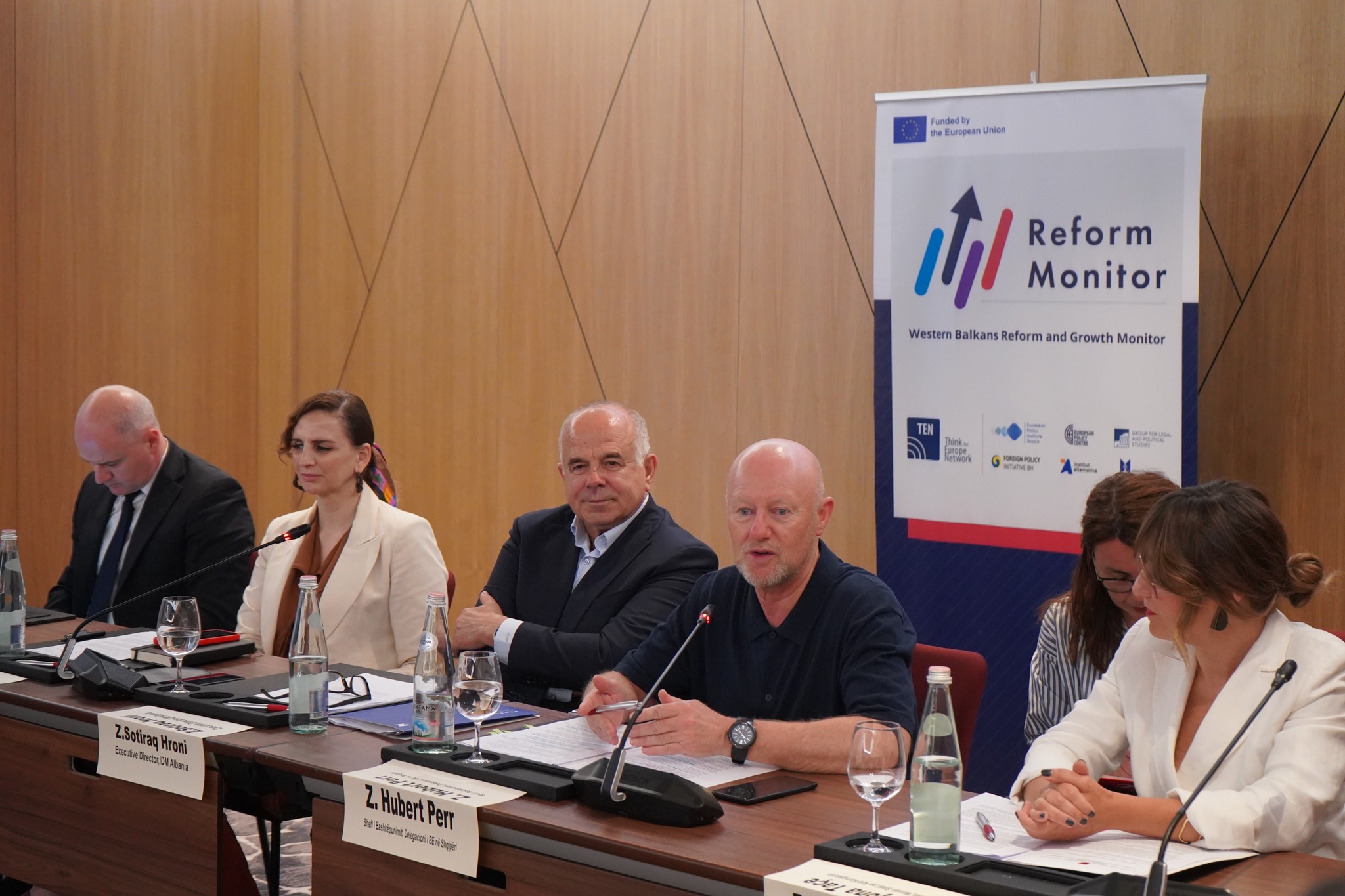EU and Albanian think tanks exchange perspectives on Albania’s Europeanization process
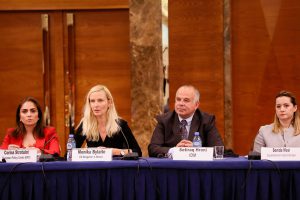 Tirana, 30 April 2019 – Last week, IDM hosted the first event of the Policy Forum “Europeanization beyond process” series that aims to drive the exchange of ideas and perspectives covering important issues in the process of Europeanization. The event was held on April 23rd ad brought together Albanian think tanks and EU think tanks, including the European Policy Centre (EPC), the Centre for European Policy Studies (CEPS) and the European Stability Initiative. The main issues that were tackled were the impact of EU priorities in the Western Balkans; European elections and its implications for the member states’ domestic politics; and how the Western Balkan think-tanks should approach Brussels and EU member states. Oftentimes, these topics are overlooked in the Albanian discourse, due to the focus on the EU enlargement process.
Tirana, 30 April 2019 – Last week, IDM hosted the first event of the Policy Forum “Europeanization beyond process” series that aims to drive the exchange of ideas and perspectives covering important issues in the process of Europeanization. The event was held on April 23rd ad brought together Albanian think tanks and EU think tanks, including the European Policy Centre (EPC), the Centre for European Policy Studies (CEPS) and the European Stability Initiative. The main issues that were tackled were the impact of EU priorities in the Western Balkans; European elections and its implications for the member states’ domestic politics; and how the Western Balkan think-tanks should approach Brussels and EU member states. Oftentimes, these topics are overlooked in the Albanian discourse, due to the focus on the EU enlargement process.
Speaking at the Policy Forum, Monika Bylaite, the Deputy Head of the Delegation of the European Union in Albania, emphasized that the “public discourse in Albania and, indeed in all the candidate countries, should not limit itself to the process of joining this union. Instead, it should also start to engage early enough on what this union is about, and on the issues this union is facing and will be facing in the future”.
In his presentation Steven Blockmans, CEPS Senior Research Fellow & Head of EU Foreign Policy Unit,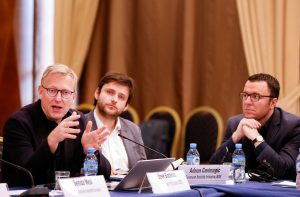 stated that in spite of the unity exercised over Brexit, the member states look more divided than ever. “With more political fragmentation expected from the European Parliament and reflected in the composition of the European Commission, we are likely to see less legislation to come out of Brussels and more insistence on the implementation of past decisions. It is unlikely that major advances on EU reform will be made without the pressure of external forces.” He added that “If and when it happens, Brexit will change the nature of the EU’s relations with neighboring countries, also for those states in Southeast Europe that will not have acceded yet”. Throughout his speech, Blockmans referred to the EU policy priorities in the next five years assessed in the latest CEPS report “What Comes after the Last Chance Commission? Policy Priorities for 2019-2024”.
stated that in spite of the unity exercised over Brexit, the member states look more divided than ever. “With more political fragmentation expected from the European Parliament and reflected in the composition of the European Commission, we are likely to see less legislation to come out of Brussels and more insistence on the implementation of past decisions. It is unlikely that major advances on EU reform will be made without the pressure of external forces.” He added that “If and when it happens, Brexit will change the nature of the EU’s relations with neighboring countries, also for those states in Southeast Europe that will not have acceded yet”. Throughout his speech, Blockmans referred to the EU policy priorities in the next five years assessed in the latest CEPS report “What Comes after the Last Chance Commission? Policy Priorities for 2019-2024”.
In response to the EU challenges mentioned, Senida Mesi, MP-Committee of European Integration of the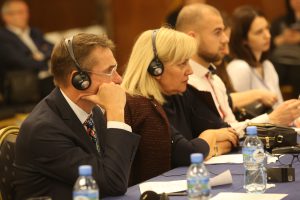 Republic of Albania, stated that the EU problems and challenges should not delay the enlargement process. Politicians often refer to the political dimension of enlargement, while the human dimension is less addressed. The Albanian willingness to become part of the EU is very high. So are the Albanian challenges. Mesi argued that more than 83% of Albanians are pro-EU integration. Therefore, Albania needs to work harder to meet the required criteria.
Republic of Albania, stated that the EU problems and challenges should not delay the enlargement process. Politicians often refer to the political dimension of enlargement, while the human dimension is less addressed. The Albanian willingness to become part of the EU is very high. So are the Albanian challenges. Mesi argued that more than 83% of Albanians are pro-EU integration. Therefore, Albania needs to work harder to meet the required criteria.
Corina Stratulat, EPC Senior Policy Analyst & Head of European Politics & Institutions programme, pointed out that the 2019 is a massive election year for the EU. It is important for the new EU 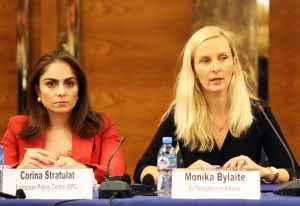 Commissioner to avoid isolating Eurosceptics, as more Eurosceptic parties gaining more influence in several member states. The European Parliament is about to face anti-European parties, because Europeans are undecided for who they are going to vote. Stratulat stated that the most difficult challenge is to show to the people that voting is important, because with that vote they could bring change to the EU.
Commissioner to avoid isolating Eurosceptics, as more Eurosceptic parties gaining more influence in several member states. The European Parliament is about to face anti-European parties, because Europeans are undecided for who they are going to vote. Stratulat stated that the most difficult challenge is to show to the people that voting is important, because with that vote they could bring change to the EU.
In his presentation, Adnan Cerimagic, Analyst – European Stability Initiative, referred to the Havels and Mečiars story to illustrate the dynamics and changes in the enlargement process since the 2004 EU memberships. Cerimagic pointed out that the logic behind the accession process seems to have been broken, but local thinks-tanks should be still inspired by and contribute to this process.
In short, although Albania’s focus on the opening of accession negotiations is both natural and necessary, there needs to be a greater awareness on what the European Union actually entails.
The Policy Forum “Europeanization beyond process” is supported by the Open Society Initiative for Europe – OSIFE.
